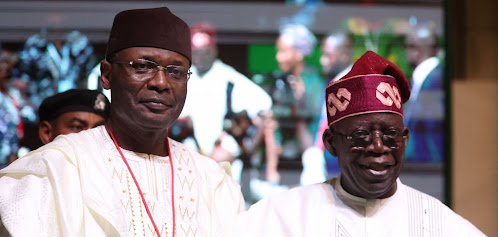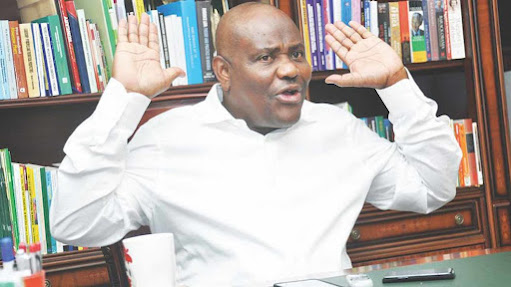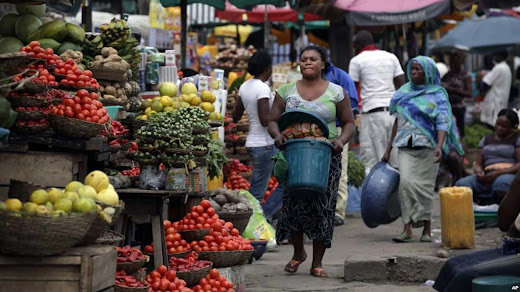By Sunny
Awhefeada
I must begin by confessing that the title of the present
discourse is not my invention. It was what I thought was an innocent question
from Isio, my eight-year-old daughter. The day was Monday, the eve of this
year’s Independence Day anniversary and the time was morning just before seven
o’clock. As has been the norm since 2008, I already had the key to the car in
my hands waiting as my wife dressed Isio up for school so I could take her on
school runs when she shot the question, “Mummy, what is the meaning of
independence?”

Thinking it was an innocuous question from a child who wanted
to know what independence was or is all about, my wife began to explain to her.
Isio retorted saying, “I know what independence is” and gave a brief overview
of the subject matter before going on to do an expose on what provoked the
question. She took on a rhetoric note saying, “I am asking the question because
what is the meaning of independence when people are not happy. People are
suffering. People are hungry.
People are afraid because of insecurity. People are dying. There
are no good roads. There is no regular electricity. Fuel is very costly. That
is why I asked, what is the meaning of independence?” Obviously she has been
reading newspapers and watching the news like her older siblings. I usually
compel them to read newspapers during weekends and make them watch the news. My
wife and I exchanged uneasy glances and heaved when our daughter was done
talking. We were both disturbed. I glanced at her again and again through the
rear mirror imagining what was going on in her mind that morning as I drove
her on the seven and a half kilometers journey to school.
My fear that morning, and even till now as I write, derives from
my concern for Isio and her generation and also for Nigeria our beloved
country that is being laid waste as a result of bad leadership and complicity
of the led. If a child that is less than ten years old and in primary school
could be so intensely aware of the sordid and sorry condition of our country
then things must have gone bad if not “worse and worst” for too long. My recall
of my earliest critical engagement with Nigeria should be around 1986 when I
had attained teenage.
That was the decade of the nation’s economic downturn when
families had to starve or invent strategies that earned them survival. It was
around that period that the Structural Adjustment Programme (SAP) was foisted
on the nation to sap the citizens. Our childhood consciousness was assailed by
hunger and we knew that something was giving way. The other indices that
presently buffet us were then unknown or incipient and of unfelt consequences.
Therefore, at that level of teenage awareness my critical engagement with
Nigeria was not as intense, deeply conscious and heavily indicting as that of
my eight-year-old daughter in the present era.
The question, “what is the meaning of independence?” is not
really Isio’s question alone, it is the question of the children of her
generation and Nigeria owes them answers. Nigeria is the space in which that
generation, just like mine, found itself so whatever contradictions that have
made life unlivable and unbearable for them must be tackled and resolved by
Nigeria, and by Nigeria I mean those of us who sired the generation. But are we
ready to address and redress the situation? I doubt and strongly so. The
“trouble with Nigeria”, apologies to Chinua Achebe, has become infectious and
almost incurable.
When Achebe did a diagnosis of the country’s ailing
condition in 1983 in his insightful and refreshing monograph The Trouble with
Nigeria some people naively thought that the views expressed in that treatise
will light the nation’s path and lead it to some redemptive destination. For so
all-encompassing and thorough was that analysis that readers thought an
understanding of the thoughts shared in that pamphlet would constitute the
silver bullet for the eradication of our woes. Unfortunately, the problems
multiplied and became inveterate phenomena.
Looking back one is wistful to the point of tears in remembrance
of what inspired my generation. The stories our parents, especially our mothers
and grandmothers, told us about independence and the hope it held and the
untold joy its realization brought to them on that day in 1960 when the
green-white-green flag displaced the Union Jack thrilled us. Our social studies,
government and history textbooks contained the inspiring stories of the independence
movement and its eventual attainment.
Our teachers, great teachers that they were, also zestfully
taught us about the ideals and beauty of the activities that culminated in
independence. It was a frenzied moment that held the thrill arising from the
infinite possibilities of freedom. Ghana’s founding President, Osagyefo Kwame
Nkrumah, gave thought to the feeling generated by independence when he told his
countrymen to seek first the political kingdom and every other thing would be
added onto them.
Critical observers of the Nigerian and African condition should
now reach the conclusion that the euphoria that greeted the anticipation and
attainment of independence was misplaced. While the struggle for independence
was ongoing there were Africans whose interests were largely selfish and they
wasted no time in subverting the ideals of nationhood in new nations that they
liberated from colonial bondage.
If historians and social scientists didn’t
see that cankerworm that gnawed at the body politick of the newly independent
nations, African writers from Nigeria, to Ghana, Kenya, Somalia, among others,
saw the pernicious trait and they aptly depicted it in their writings. Wole
Soyinka’s pessimism in A Dance of the Forest, Chinua Achebe’s corrosive A Man of
the People, Ayi Kwei Armah’s bleak The Beautiful Ones Are Not Yet Born, Ngugi
wa Thiong’o’s indicting A Grain of Wheat, all point to the African writer’s
capacity to see beyond the frenzy and revelry that greeted independence. The
crises that have held us down have always been there incipient and unnoticed
for a long time except for the clairvoyant.
Nigeria didn’t and couldn’t celebrate her 64th independence
anniversary because the phenomenon no longer has meaning. It lost its
significance many years ago. Rather than celebrate and memorialize the day,
Nigerians held their breadth and were tensed up in anticipation of the unknown.
The nation was militarized as security forces poured onto the streets to
preempt protests calling for an end to bad governance and clamouring for good
governance.
The new wave of protest which began in August was intended to
end bad governance and all its attendant ills. It was not about regime change,
but a call for responsive and responsible leadership. The protest organizers,
patriots them all, insist on continuing the protest on 1st October, the day of
the nation’s freedom in 1960. Afraid of freedom and uncomfortable with good
governance, those holding the levers of power rolled out military tanks to put
unarmed civilians clamouring for good governance in check while bandits and
terrorists are enjoying a field day in many parts of the country.
Independence has truly lost its meaning to the extent that those
ruling Nigeria have become afraid of freedom from bad governance. Nigeria has
been dubbed a failed state. It has been named among the most unsafe places to
live in the world. It has been awarded the unflattering medal of the most
corrupt country in the world. It has also been described as enmeshed in
multi-dimensional poverty. These are real, scary and biting reality to the
point that a child could question the essence of our independence. May be we
should bring back the colonial masters. After all, did government not give us
the old national anthem when we asked to be governed right? Let the old
colonial masters return in the same token!
* Awhefeada is a Professor of English





















